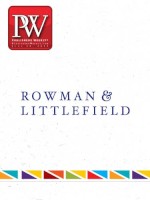In Robin Blake’s second 18th-century historical, Dark Waters, coroner Titus Cragg and Dr. Luke Fidelis investigate politically motivated murders.
What led you to start this series?
I had become immersed in the northwest of England in the 18th century while writing about the painter George Stubbs. I had files bulging with unused research material and thought of using up some of it in a novel set in that region and period.
What intrigued you about the era?
In the 1740s, crime and punishment in Britain were approaching a tipping point. The first glimmerings of a professional police force, the Bow Street Runners, appeared at the end of that decade, so attitudes to law enforcement were soon going to change quite radically. But crime was still at that time both defined and dealt with in traditional ways, embellished by occasional parliamentary laws, which were variably understood and enforced. At the same time, a new, more rational and scientific approach to problem solving was beginning to make itself felt—the so-called Enlightenment. Its approach is represented by Luke Fidelis, the doctor who helps coroner Titus Cragg with his investigations. Fidelis is an embryonic forensic scientist of a kind fairly specific to his time.
Why set the books in a town like Preston rather than London?
Almost everybody writing about 18th-century crime in Britain writes about London, and there are lots of excellent reasons for that. But I wanted to do something different, and Preston offered the opportunity. This was a historic borough town, far from the metropolis, governed by an oligarchy of merchants, suspicious of newcomers, and a place where everybody knew everybody’s business. It’s like a small city-state.
Can you expand on your claim that there are significant similarities between Thomas Hardy’s fiction and crime fiction?
Hardy’s novels are steeped in ideas about morality, but he himself is not really a moralist, in the sense that there’s nothing of the preacher about him. Crime fiction is almost always specifically about right and wrong, or about popular and legal ideas about good and bad behavior. But it doesn’t do for crime writers themselves to take up moral positions. It is better to be, like Hardy, an observer of the various types of morality espoused by others.
Is plotting a problem for you?
As a very unmethodical writer, I don’t go in for plotting the novels tightly in advance. But my method of plotting was once described, by another writer, as jumping out of a plane and trying to knit yourself a parachute before you hit the ground. It’s not the easiest way to go about things, but it is exciting.



 Volume 260
Issue 23
06/10/2013
Volume 260
Issue 23
06/10/2013





